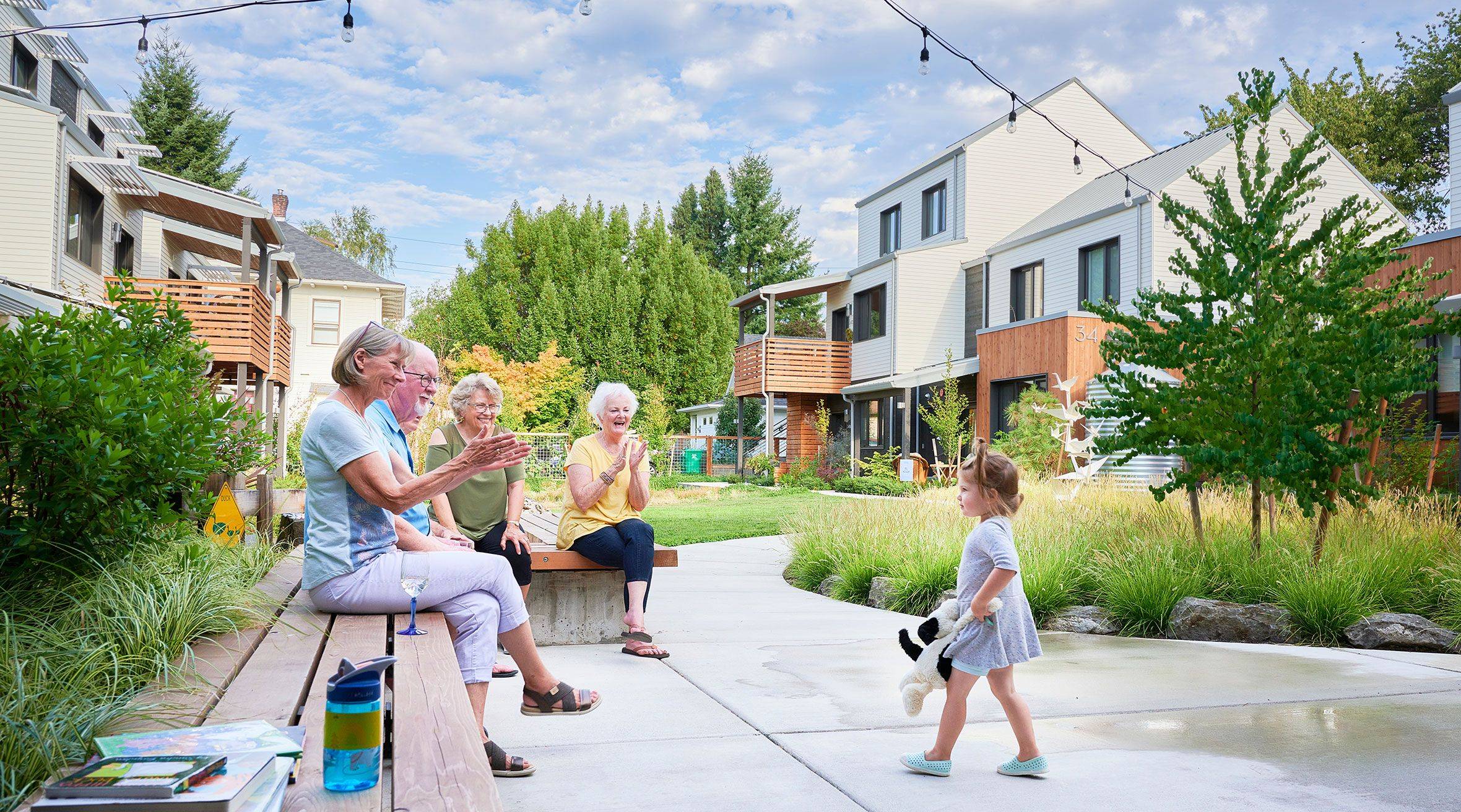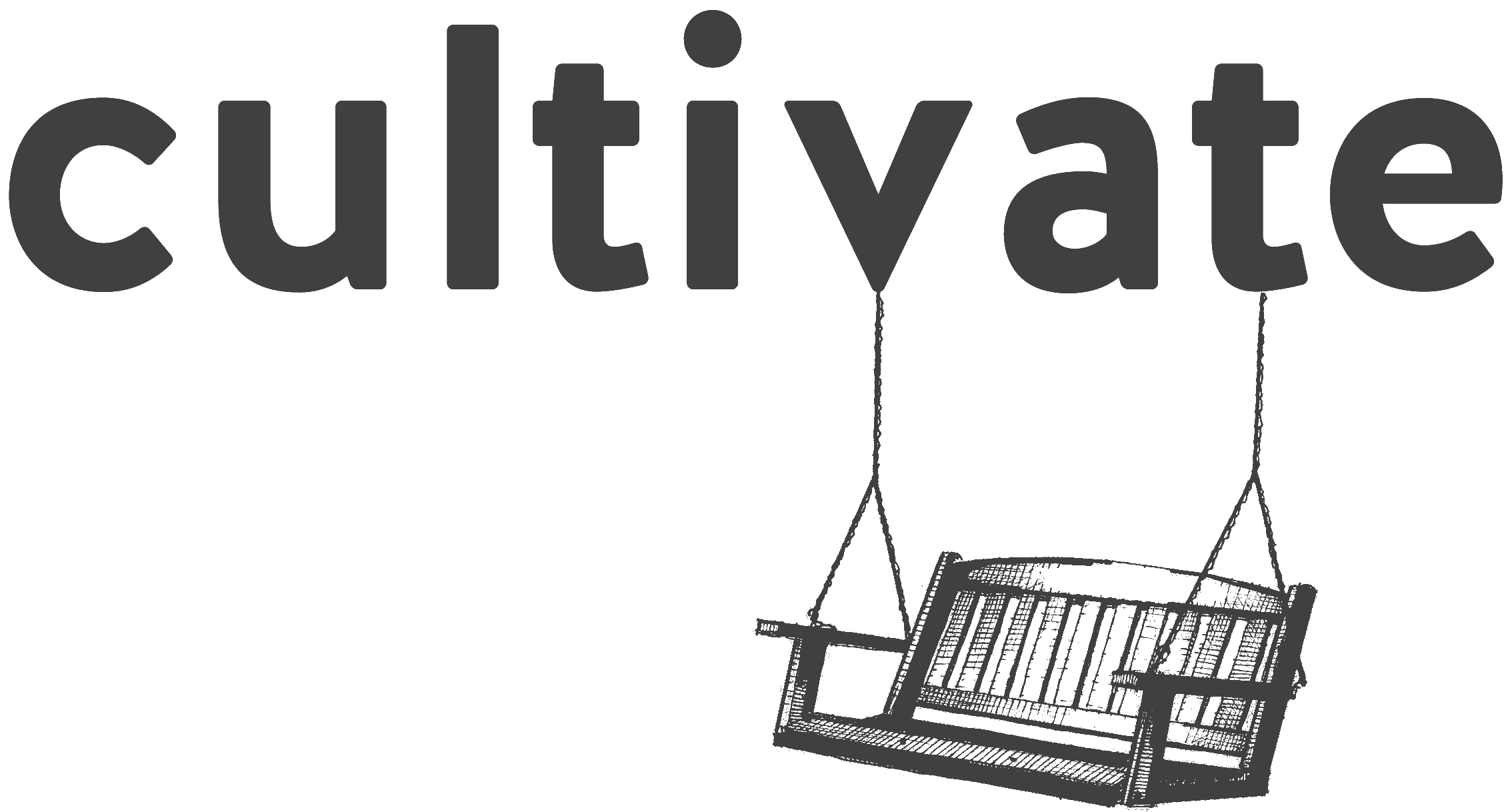about cultivate, inc.


everyone deserves access
to a sustainable home
in a walkable neighborhood.
everyone deserves access
to a sustainable home
in a walkable neighborhood.
Walkable neighborhoods aren’t just good for the planet—they foster community, combat isolation, and bridge divides. At Cultivate, we are passionate about creating sustainable homes and walkable neighborhoods that are accessible to all. Our projects such as College Hill Cottages and Grant Street Grow Homes in Eugene showcase how we artfully balance sustainable, human-centered design with affordability.
Walkable neighborhoods aren’t just good for the planet—they foster community, combat isolation, and bridge divides. At Cultivate, we are passionate about creating sustainable homes and walkable neighborhoods that are accessible to all. Our projects such as College Hill Cottages and Grant Street Grow Homes in Eugene showcase how we artfully balance sustainable, human-centered design with affordability.

Dylan Lamar

OWNER & DIRECTOR
ARCHITECT-DEVELOPER
CERTIFIED PASSIVE HOUSE CONSULTANT
Dylan is among the nation’s leading architects of sustainable housing. His practice is shaped by his diverse experience as a passive house consultant, housing developer, and occasional builder. He brings vision and holistic real-world understanding to every project.

In 2005, Dylan designed the first certified low-income passive house built in America. He went on to help author passive house design software in collaboration with the Passive House Institute and Phius.
After graduating with a master’s degree from the University of Oregon in 2009, Dylan co-led the design team at Green Hammer in Portland for eight years. The collaborative practice he helped establish in the design-build company informs his inclusive approach to design to this day. His passion and expertise remain diverse. To date, Dylan has designed multiple socially-nourishing clustered housing developments and provided sustainability consultation on over one hundred passive house, net zero energy, and other high-performance buildings across America.
In 2018, Dylan returned to Eugene, established Cultivate, and began pursuing housing development that prioritizes both sustainability and affordability. Ever enthusiastic in sharing his experience, Dylan is a published author, frequent conference presenter, and college lecturer.
“Sustainability requires reverent connectivity. With simple regard for all stakeholders—ourselves, our neighbors, future inhabitants, our host ecosystem… and yes, even our financial lender—we can create something that moves us forward together.”
BS Civil/Structural Engineering, summa cum laude — University of Arkansas, 2003
Building Research Council — University of Illinois, Urbana-Champaign, 2004-2006
Energy Studies in Buildings Laboratory — University of Oregon, 2007-2009
Master of Architecture — University of Oregon, 2009
Certified Passive House Consultant, since 2005
Licensed Architect — State of Oregon, since 2014
Dylan is among the nation’s leading architects of sustainable housing. His practice is shaped by his diverse experience as a passive house consultant, housing developer, and occasional builder. He brings vision and holistic real-world understanding to every project.
In 2005, Dylan designed the first certified low-income passive house built in America. He went on to help author passive house design software in collaboration with the Passive House Institute and Phius.
After graduating with a master’s degree from the University of Oregon in 2009, Dylan co-led the design team at Green Hammer in Portland for eight years. The collaborative practice he helped establish in the design-build company informs his inclusive approach to design to this day. His passion and expertise remain diverse. To date, Dylan has designed multiple socially-nourishing clustered housing developments and provided sustainability consultation on over one hundred passive house, net zero energy, and other high-performance buildings across America.
In 2018, Dylan returned to Eugene, established Cultivate, and began pursuing housing development that prioritizes both sustainability and affordability. Ever enthusiastic in sharing his experience, Dylan is a published author, frequent conference presenter, and college lecturer.
“Sustainability requires reverent connectivity. With simple regard for all stakeholders — ourselves, our neighbors, future inhabitants, our host ecosystem… and yes, even our financial lender — we can create something that moves us forward together.”
BS Civil/Structural Engineering, summa cum laude — University of Arkansas, 2003
Building Research Council — University of Illinois, Urbana-Champaign, 2004-2006
Energy Studies in Buildings Laboratory — University of Oregon, 2007-2009
Master of Architecture — University of Oregon, 2009
Certified Passive House Consultant, since 2005
Licensed Architect — State of Oregon, since 2014
hadley carlberg
ARCHITECTURAL DESIGNER / PASSIVE HOUSE DESIGNER
CERTIFIED PASSIVE HOUSE CONSULTANT
Hadley’s commitment to sustainability goes hand in hand with her desire to pursue architecture. It started with a simple fact: the built world is responsible for much of the Earth’s carbon emissions, but the need for construction, and housing, remains high. Wanting to be part of the climate solution, she invested in an education centered on sustainable design.

During her time at the University of Oregon’s Architecture & Environment program, she got certified as a Passive House Consultant and built up an expertise in the Living Building Challenge. Hadley’s research is published on workplace design’s inequitable access to light and its effect on physical health with the Baker Lighting Lab. Her undergraduate honors thesis, which was presented at the 2023 Sustainable Buildings Week, is published on mass timber use in the Living Building Challenge.
Throughout her career, Hadley has curated a specialization in socially-focused and environmentally-conscious work. Now, she eagerly brings these priorities into a focus on middle & affordable housing with Cultivate Inc.
BARCH Architecture, summa cum laude — University of Oregon, Robert D. Clarke Honors College, 2023
Certified Passive House Consultant, since 2022
Hadley Carlberg

ARCHITECTURAL DESIGNER
PASSIVE HOUSE DESIGNER
CERTIFIED PASSIVE HOUSE CONSULTANT
Hadley’s commitment to sustainability goes hand in hand with her desire to pursue architecture. It started with a simple fact: the built world is responsible for much of the Earth’s carbon emissions, but the need for construction, and housing, remains high. Wanting to be part of the climate solution, she invested in an education centered on sustainable design.
During her time at the University of Oregon’s Architecture & Environment program, she got certified as a Passive House Consultant and built up an expertise in the Living Building Challenge. Hadley’s research is published on workplace design’s inequitable access to light and its effect on physical health with the Baker Lighting Lab. Her undergraduate honors thesis, which was presented at the 2023 Sustainable Buildings Week, is published on mass timber use in the Living Building Challenge.
Throughout her career, Hadley has curated a specialization in socially-focused and environmentally-conscious work. Now, she eagerly brings these priorities into a focus on middle & affordable housing with Cultivate Inc.
BARCH Architecture, summa cum laude — University of Oregon, Robert D. Clarke Honors College, 2023
Certified Passive House Consultant, since 2022
Collaborators and clients
Aligned Architecture – Nir Pearlson, Architect
Black Mountain Architecture
Bruns Realty Group
Buddha Eye Temple
DevNW
Green Hammer
Holst Architecture
Lohr Real Estate
MWA Architects
Northwest Housing Alternatives
PAE Consulting Engineers
REACH Community Development
Square One Villages
Studio.e Architecture – Jan Fillinger, Architect
Sunlight Solar Energy
Walsh Construction
Zero E Design – Joaquin Karcher, Architect
ZGF Architects

